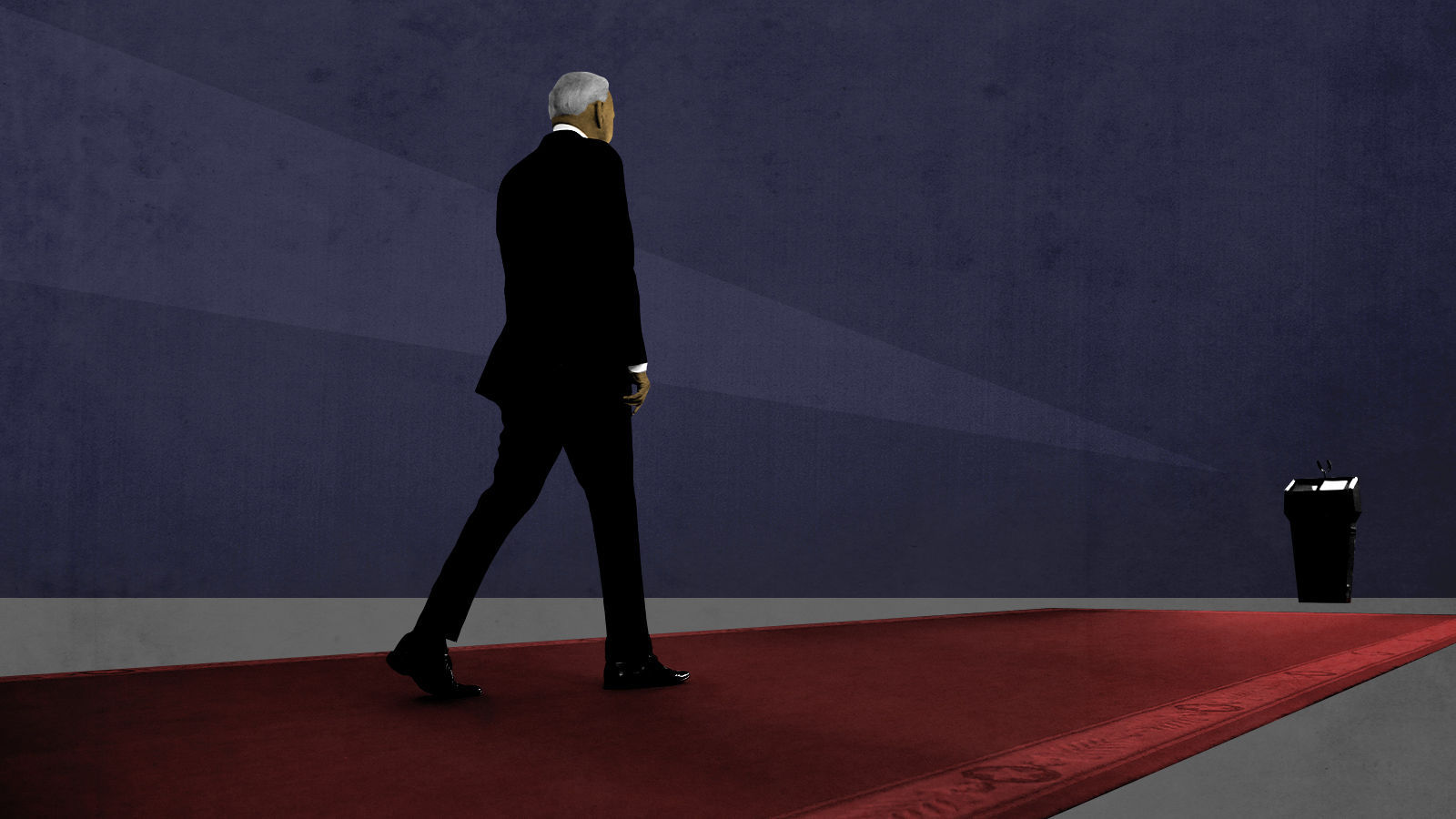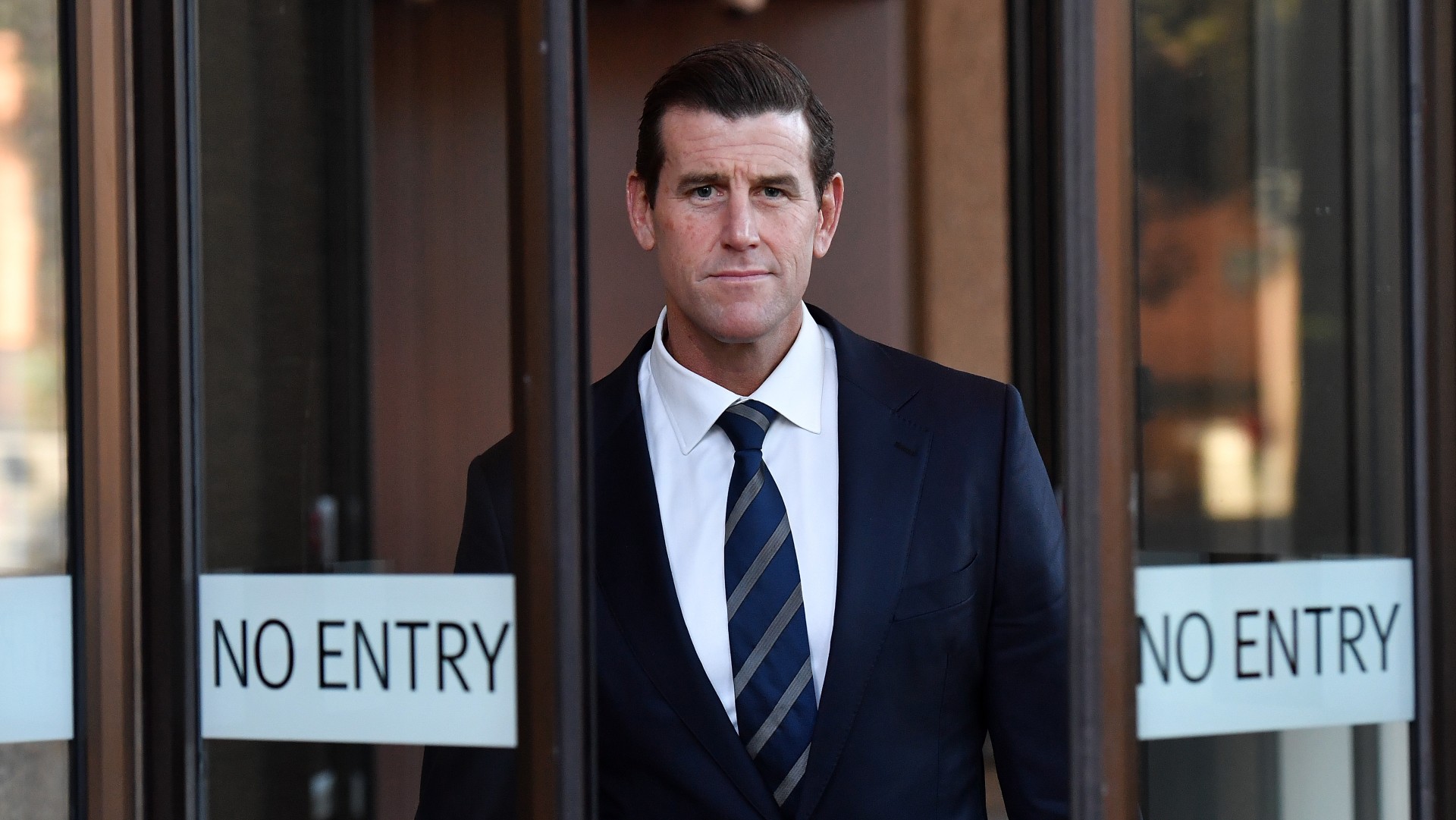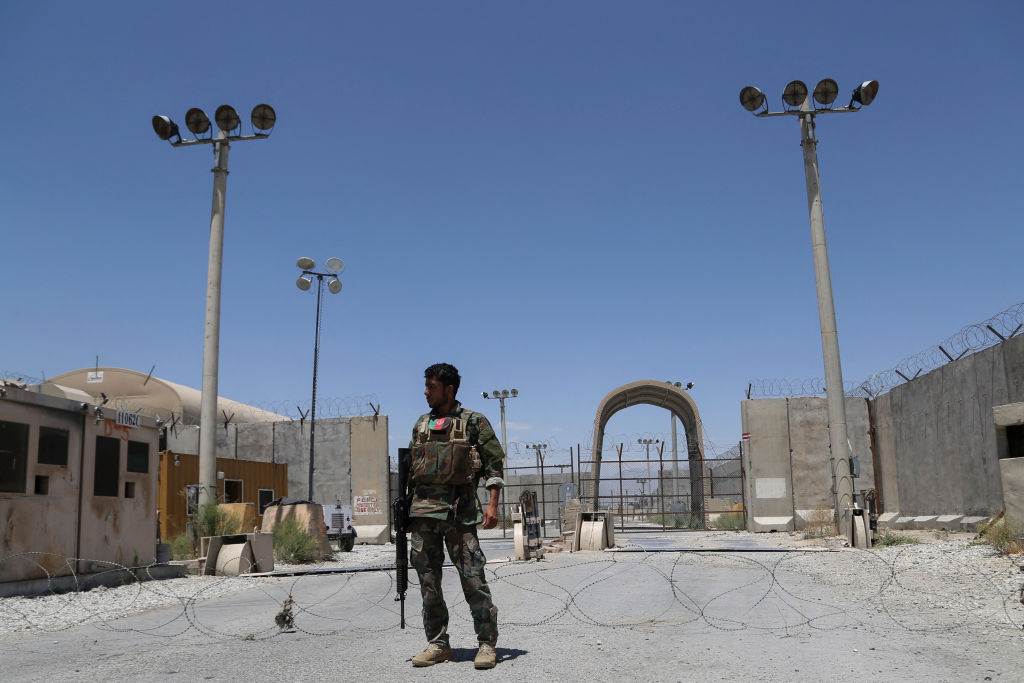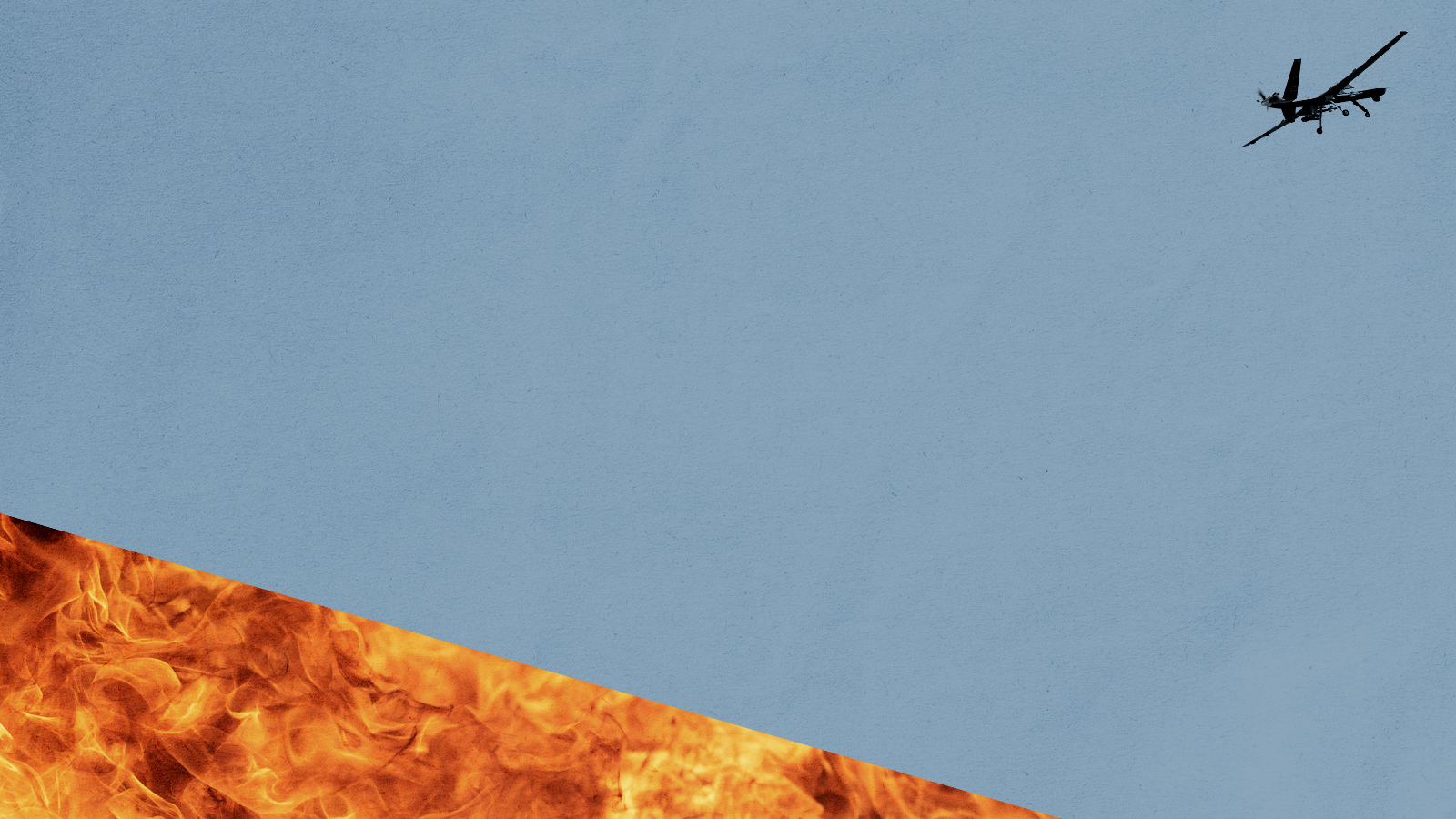Joe Biden's political courage
In ending the occupation of Afghanistan, the president demonstrated the value of having a spine


A free daily email with the biggest news stories of the day – and the best features from TheWeek.com
You are now subscribed
Your newsletter sign-up was successful
The occupation of Afghanistan is over. I have to admit that I never thought President Biden would actually do it. He was a supporter of the invasions of both Afghanistan and Iraq, and more broadly a hawkish Democrat for almost his entire career. It's a surprising break in his previous pattern, but I was still wrong.
I also have to admit I never expected Biden to be able to stand up to such a firestorm of condemnation. The entire political press has been pitching such a prolonged, purple-faced screaming fit that they have virtually ignored multiple weather disasters across the country — apparently so they could hound White House Press Secretary Jen Psaki about what countries Biden would invade next. There's never enough blood for the imperial press.
But Biden wasn't having it. He refused to back down and completed the withdrawal on schedule. As I previously argued, it's the strongest act of political courage I have seen in my life — not that there was much competition for the title, but it's still astounding. Hopefully his act can teach the rest of his party the political utility of possessing a spine.
The Week
Escape your echo chamber. Get the facts behind the news, plus analysis from multiple perspectives.

Sign up for The Week's Free Newsletters
From our morning news briefing to a weekly Good News Newsletter, get the best of The Week delivered directly to your inbox.
From our morning news briefing to a weekly Good News Newsletter, get the best of The Week delivered directly to your inbox.
The first lesson Biden has demonstrated is that sometimes in politics there is no easy solution, and the hard choice carries the least risk. He was surely calculating that if he did not finish the withdrawal, he would end up re-starting the war, and that would create its own political (and literal) damage. It would mean going back on his word, it would get American soldiers and Afghans killed, and then he would be right back in the same unwinnable quagmire as all three of his predecessors. It was a hard decision to make, and (like the fall of any government) it created a chaotic and violent situation, but there was no better option.
Democrats have enormous trouble in such situations. As a rule, they are extremely timid and easily-bullied, and tend to assume that doing as little as possible or sticking to the status quo will minimize risk. This is called "cowardice." When moderate Democrats insisted on trimming down the 2009 Recovery Act out of knee-jerk fear of large budget deficits, for instance, the result was 10 percent unemployment on Election Day in November the following year, and calamitous political defeat.
Democrats aren't the only people who do this, by the way. Donald Trump could be bold in certain ways but he also cared very, very deeply about his television coverage — it was practically his sole concern as president. He is also so dim and incurious that the generals quite easily manipulated him into escalating in Afghanistan in 2017. It beggars belief to imagine he could take being criticized on TV this much without reversing course. (Just look at how Trump's official statements went from boasting about setting up the withdrawal to opposing it the moment bad headlines started to roll in.)
The second lesson is that sometimes it is worth taking a political hit now for a likely benefit later. Now that the withdrawal is over, the media panic attack is already starting to subside. Likely within a few weeks the press will be back to totally ignoring Afghanistan as they did before the withdrawal. But Biden will be able to point to a promise he fulfilled and a concrete policy success. The U.S. is no longer spending $300 million a day on a war a large majority of Americans agree was a dismal failure, and no more American soldiers will be over there in harm's way for no reason.
A free daily email with the biggest news stories of the day – and the best features from TheWeek.com
The third (admittedly somewhat speculative) lesson is that courage creates political energy. When a leader of a political faction caves in the face of criticism, or does straight-up terrible things, it demoralizes his or her supporters — particularly if that criticism is bad-faith B.S. When panicked Democrats killed the voting rights group ACORN because of racist lies from a right-wing operative (and later convicted criminal), it drove many liberals to despair. Re-starting a war because of Richard Engel's wounded imperial pride would have the same effect.
But when a leader stands up for his faction and does the right thing, it has a contrary morale-boosting effect. It shows that all that effort ordinary people put into placing Biden into the White House is paying off in terms of positive change — which is much more motivating and satisfying than a lack of bad things happening. It shows that putting in effort to keep him in office for a second term is worth doing. And in the process Biden has won plaudits from unusual corners (myself included). Co-hosts of the hitherto ferociously anti-Biden podcast Chapo Trap House recently said that the Afghanistan withdrawal will make him the best president of their lifetimes, should it stick.
Now, courage always involves some prudential wisdom. It's not courageous to refuse to back down from an objectively foolish or wrong position. And like the Chapo hosts, I don't want to give Biden too much credit either — thus far he has not actually reoriented American foreign policy away from the disastrous war on terror; only ended one of its most obviously failed sub-conflicts.
But that still counts as a major achievement by the wretched standards of the American presidency, and doing so still took real guts. Thus far the American people are grudgingly with him — a recent Pew poll found 54 percent of U.S. adults still agreeing with the decision to withdrawal, though less than half thought he had handled the withdrawal well. As the dust settles, and the media blood frenzy dies down, I suspect Biden's argument that withdrawal simply couldn't be avoided will only grow in popularity, particularly among the majority of Democrats who currently give him poor marks. And I will wager quite a lot that future historians will agree that Biden made the right decision. That's the stuff that great presidents are made of.
Ryan Cooper is a national correspondent at TheWeek.com. His work has appeared in the Washington Monthly, The New Republic, and the Washington Post.
-
 Labor secretary’s husband barred amid assault probe
Labor secretary’s husband barred amid assault probeSpeed Read Shawn DeRemer, the husband of Labor Secretary Lori Chavez-DeRemer, has been accused of sexual assault
-
 Trump touts pledges at 1st Board of Peace meeting
Trump touts pledges at 1st Board of Peace meetingSpeed Read At the inaugural meeting, the president announced nine countries have agreed to pledge a combined $7 billion for a Gaza relief package
-
 Britain’s ex-Prince Andrew arrested over Epstein ties
Britain’s ex-Prince Andrew arrested over Epstein tiesSpeed Read The younger brother of King Charles III has not yet been charged
-
 Operation Rubific: the government's secret Afghan relocation scheme
Operation Rubific: the government's secret Afghan relocation schemeThe Explainer Massive data leak a 'national embarrassment' that has ended up costing taxpayer billions
-
 Ben Roberts-Smith: will more Afghanistan war crimes trials follow?
Ben Roberts-Smith: will more Afghanistan war crimes trials follow?Today's Big Question Former SAS soldier lost defamation case against Australian newspapers that accused him of murder
-
 Can the UK rely on the British Army to defend itself?
Can the UK rely on the British Army to defend itself?Today's Big Question Armed forces in ‘dire state’ and no longer regarded as top-level fighting force, US general warns
-
 Afghanistan: A year after the withdrawal
Afghanistan: A year after the withdrawalopinion What did the U.S. leave behind when it pulled out of Afghanistan?
-
 Watchdog report blames Trump and Biden administrations for collapse of Afghan troops
Watchdog report blames Trump and Biden administrations for collapse of Afghan troopsSpeed Read
-
 This is life in Afghanistan since the Taliban takeover
This is life in Afghanistan since the Taliban takeoverSpeed Read Hunger, drugs, and restrictions on women haunt the nation
-
 Why the Pentagon can't put an end to civilian deaths
Why the Pentagon can't put an end to civilian deathsTalking Point
-
 Concerns about Afghan air force were 'being actively addressed,' Pentagon spokesperson says
Concerns about Afghan air force were 'being actively addressed,' Pentagon spokesperson saysSpeed Read
